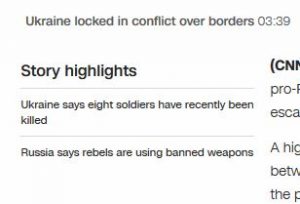We continue Michael Flynn; Can Russia be Persuaded to Break with Iran? with an explanation of the “no” prediction. The several paragraphs that follow are supposed to jerk the American reader out of his particular pragmatic mindset, so as to appreciate the Russian mindset. You can skip them if you’re already there.
The expression “pragmatic foreign policy” has suffered the usual fate of the politicized; it’s been devalued. The general idea is that a pragmatic idea pursues realizable, tangible goals. Perhaps it is best nailed down by it’s opposites: romantic. fanciful, wishful, dreamlike. But U.S. policy has always incorporated elements of the romantic. Perhaps the romantic part is never decisive. Cynics call it window dressing.
The simple fact that democracies esteem each other, and the mutual dislike or distrust of democracies for nondemocratic regimes, promotes a fusion of the above. But precise introspection is necessary to fully understand the different framework of an adversary. A consequence of pragmatism is not to think too far ahead of events. Every step of projection involves an element of imagination, pulling further away from the anchors of the current reality. When it’s good, it’s called contingency planning. In criticism, it becomes “not pragmatic.” Where to draw the line is elastically dependent upon personalities.
From our island continent/fortress, we watch the goings-on in Eurasia with a certain detachment of timescale. On this scale, the chessboard movements occur at a sedate pace. Nothing can happen in a day, month, or even a season, that will have more consequence than knock a point off the GNP. As a result, we tend to think of foreign policy goals as static, durable achievements. We might qualify this with, “Nothing lasts forever, but…”
The time scale diminishes as one gets closer to the action. The scale defined by the speed of a bullet, the warning time of an airstrike, or the time it takes to infiltrate and concentrate across a porous border; these are the concerns of a continental power. To such a power, there are no static goals. Foreign policy is a constant balancing act. Russia is a continental power.
Flynn’s desire that Russia “break with Iran” is a consequence of American pragmatism. It implies that a chessboard solution to the regional problems would be facilitated by a break. But to the Russian, continental mindset, it would simply be the removal of one potential balancing wheel, with points of influence, from the potentialities of solution.
The above is one distillation of thought. As always, there are others. In the Middle East, beginning with the rivalry of the Seven Sisters, it has been accepted as civilized behavior to back opposing proxies. It doesn’t contradict diplomacy, trade, or cocktails in the evening. Russia-Turkey relations are a current example, with reasonably cordial relations and trade, in spite of conflict via proxies.
Positive, rather than negative, relations with Iran are important to Russia. Iran is dominantly Shiite. The Russian Caucasus, and the greater, dominantly Sunni 14% Muslim minority of Russia, are vulnerable to radicalization via porous southern borders. Shiite dominance of Iran acts as the equivalent of the species barrier of a biological pathogen. It is a cultural barrier to radicalization, instrumental to reducing the vulnerability of Russia to Sunni jihadist influence. It also reflects Russian thinking that Shia Islam, though on an expansionist kick, does not spawn stateless terrorism.
All students of history are acquainted with the concept of balance-of-power. In the 19th century, it was a phrase of the man on the street. For Russia, in the Middle East, the meaning has transmuted a little. The modern goal is to direct the energies of smaller, neighboring powers, so that they cannot form a combination against Russia. Polarization with Iran, by accession to Michael Flynn’s wish, would remove Iran from the activity of balance. But Russia’s history teaches there can be no end to the balancing.
Although a “break” with Iran is not in the offing, effective cooperation is possible. But Flynn does not appear to have appreciated the deficit of mutual trust. It cannot be unwound by mere conciliation. I give my personal opinion that Ukraine should be resolved first. Had it not been an issue at the time of Russia’s intervention in Syria, Russia’s proposal to jointly fight ISIS with the U.S. would have been received with greater consideration.
This is an opportunity for the skilled U.S. negotiator to take another look at Linkage as a Foreign Policy Technique for the Trump Administration.
Next: Development of a Trump Middle East policy.
